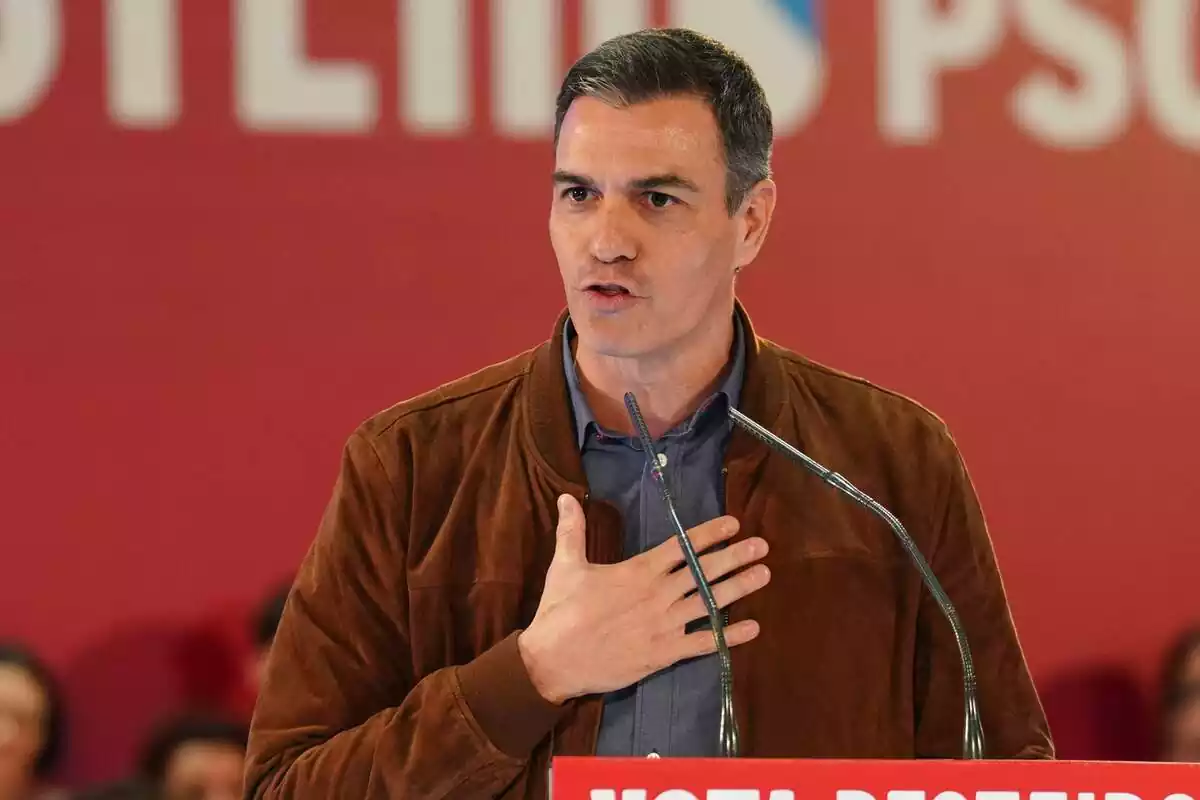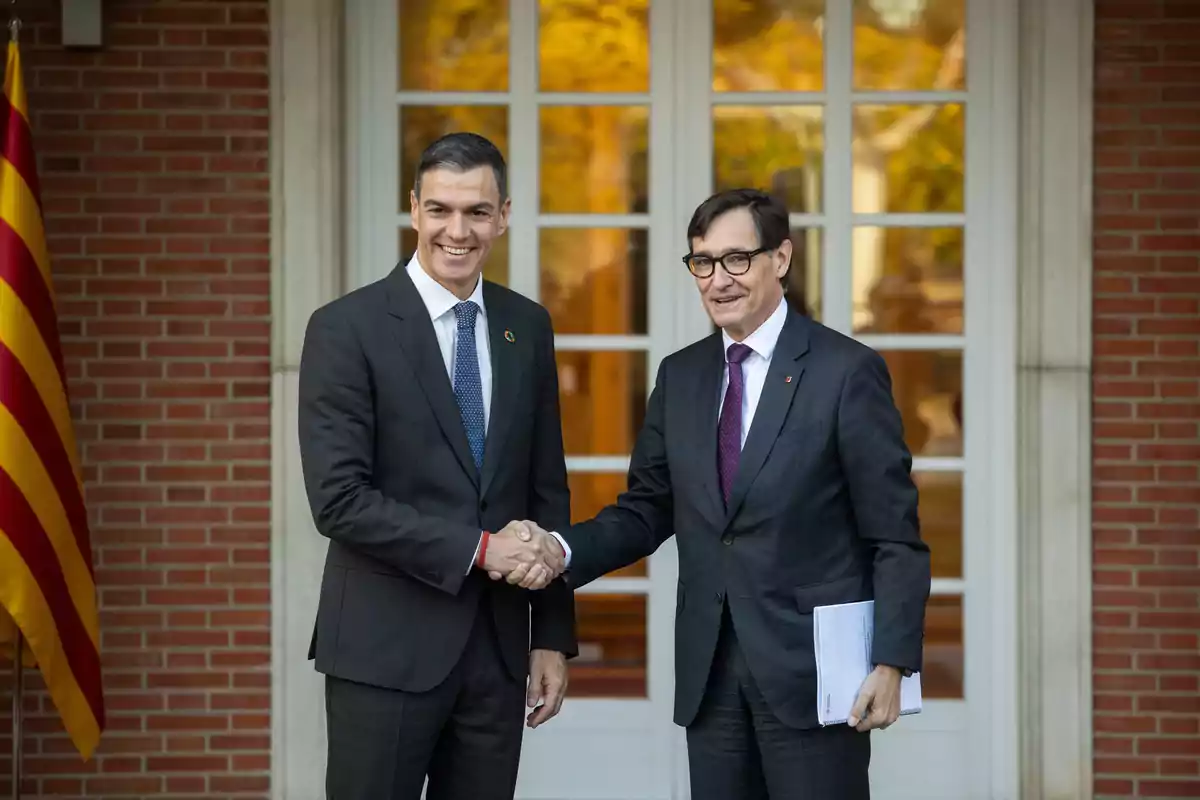
Moncloa, Palau, and Time Until 2027: PSOE's Hat Trick with the Amnesty Law
President Pedro Sánchez Has Made Puigdemont a Hostage of the Amnesty Law
According to David Madí, former right-hand man of President Mas, Catalan political culture has a historical problem. This problem is none other than Catalonia never having understood the language of power. Spain, on the other hand, Madí says, has an "admirable culture of power," which explains its historical survival.
If we look at the last ten years, Madí's thesis is undeniable. Once collapsed, the procés has been revealed as a great social and political fraud. No one was prepared to set up a State and face a conflict with another State. The procés was more of an autonomous partitocracy that was moving forward, in collusion with a huge network of interests, starting with the press.
This is what explains why Spain dismantled the procés without much difficulty; Article 155 and the courts were enough. This dismantling opened a strange era in Catalonia, which spanned from Torra's presidency to the last regional elections. Those were the years when Puigdemont ordered Junts to become a (self-)marginalized actor in Spanish politics.

However, the last general elections changed this landscape by whims of chance. With one of the keys to give life to Frankenstein, Puigdemont changed course and became a government partner of the PSOE. Without prejudice to the fact that, in the public eye, he was a combative and tough partner. But the important thing about the relationship between Junts and the PSOE was the amnesty law.
Initially, the procés sold the amnesty law as a double achievement. On one hand, it would mean a defeat for Spain in the procés decade. On the other hand, it would allow the political resurrection of the independence leaders to continue the conflict. But nothing could be further from the truth.
"The Amnesty Doesn't Fit in the Spanish Constitution"
For now, the only de facto beneficiary of the amnesty law has been Pedro Sánchez. We are facing a new chapter of Madí's thesis: understanding or not the language of power. The PSOE has understood it, and the procés (Puigdemont in particular) has not. The facts don't lie: at this moment, the PSOE holds more power than ever.
The priority of the PSOE was never to build a substantial government with a deep political project, but to reach power and keep it. The proof of this is found in the countless "changes of opinion" of the PSOE on almost all matters. On amnesty, for example, Pedro Sánchez said it "doesn't fit in the Constitution":
It should be remembered that Pedro Sánchez assured at the beginning of his career as secretary general of the PSOE that he would bring Puigdemont back to Spain. But the striking thing about the case is that Puigdemont was aware of Sánchez's profile. In fact, it was Puigdemont who said he "wouldn't make Sánchez president" because "he's a guy you wouldn't buy a used car from":
In this sense, the PSOE interpreted the amnesty law as another necessary change of opinion to stay in power. The only risk of granting amnesty was in the timing issue. That is, giving amnesty to Puigdemont and then having him let the government fall. The solution to this problem was in the judicial timing. And that's where we are now.
The PSOE Reaps Benefits and Puigdemont Is Left Hungry
Everything points to the European justice system ruling on the amnesty law around the year 2028. But the key is in the entire previous path, which the PSOE had very well measured. Because, before reaching Europe, it had to go through the Supreme Court and the Constitutional Court. Politically speaking, this translated into something that benefited the PSOE and harmed the procés: time.
More specifically, enough time so that none of the partners would force an early election. Parallel to this, the PSOE hasn't hesitated to give the procés all the credit it asked for; another thing is under what conditions that credit arrived. We're talking about Catalan in Europe, the transfer of Rodalies, immigration competencies, Catalan treasury, etc.

To make the strategic difference between PSOE and the procés even more glaring, there's no need to leave Catalonia. In a context of deep social disillusionment, the Catalan population understood the amnesty as a gesture from the PSOE to calm tempers. This has translated into a direct torpedo to the procés's waterline: the loss of the Generalitat.
This is why Moncloa promoted Illa from Minister of Health to candidate in Catalonia. A calm and moderate figure to capitalize on Sánchez's amnesty in Catalonia. Meanwhile, Junts is simmering in the opposition thanks to the tough competition from Aliança Catalana. To the extent that Puigdemont doesn't bring down Sánchez, Junts can't present itself as more independentist than Orriols.
More posts: